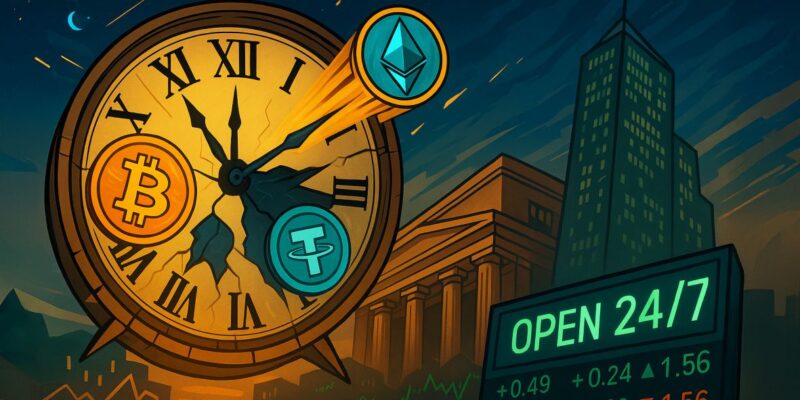
Key Points
- CFTC considers 24/7 trading and perpetual futures, inspired by crypto’s always-on model.
- TradFi platforms like Nasdaq and Robinhood have already extended trading hours.
- If adopted, reforms could boost liquidity, flexibility, and global competitiveness.
Crypto’s Influence Hits Mainstream
Crypto markets have always operated without interruption, enabling traders worldwide to buy and sell at any hour. This structure has become a standard for accessibility and flexibility, features that traditional markets are now trying to emulate.
Traditional platforms such as Nasdaq and Robinhood have already extended trading hours. The SEC has also approved longer equity trading windows. The CFTC’s (Commodity Futures Trading Commission) latest move is a signal that traditional finance (TradFi) is beginning to recognize the demand for continuous market access. CFTC is responsible for regulating U.S. derivatives markets, including futures, swaps, and options, to ensure market integrity and protect participants.
Why 24/7 Trading and Perpetuals Matter
Acting CFTC Chair Caroline Pham emphasized the need for “forward-looking” reforms to keep U.S. markets competitive and inclusive. The CFTC is particularly interested in the potential of perpetual futures and derivatives without expiry dates that dominate crypto exchanges.
If adopted, 24/7 trading and perpetual contracts could:
- Benefit Retail Traders with more flexibility and real-time response to global events.
- Help Institutions manage risk across time zones and capture global opportunities.
- Boost Liquidity for exchanges and market makers, especially during off-hours.
However, challenges remain like managing continuous volatility, maintaining infrastructure uptime, and ensuring regulatory oversight.
A Turning Point for TradFi
This proposal marks a major shift in how traditional finance views crypto’s infrastructure. What was once considered fringe is now a source of innovation. If adopted, these changes could blur the lines between TradFi and DeFi, creating a hybrid market that offers the best of both worlds.
With public comments open until May 21, the door is open for market participants to shape what could become a landmark moment in financial history.


